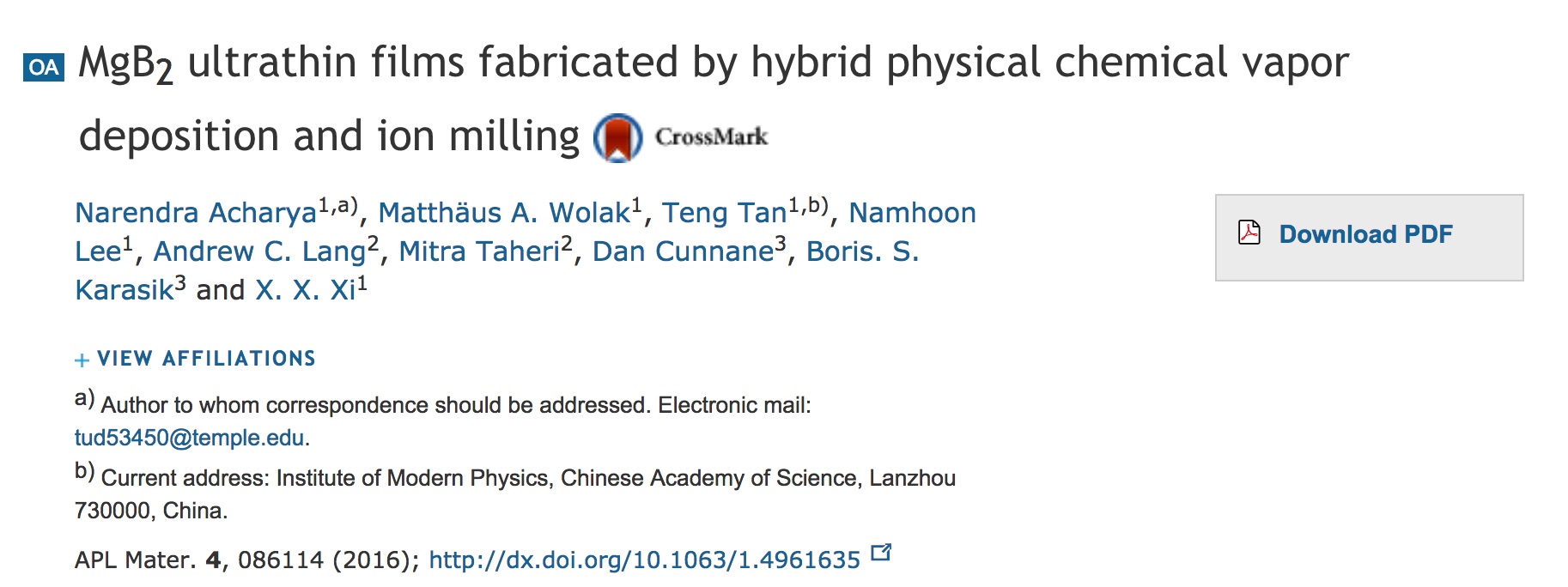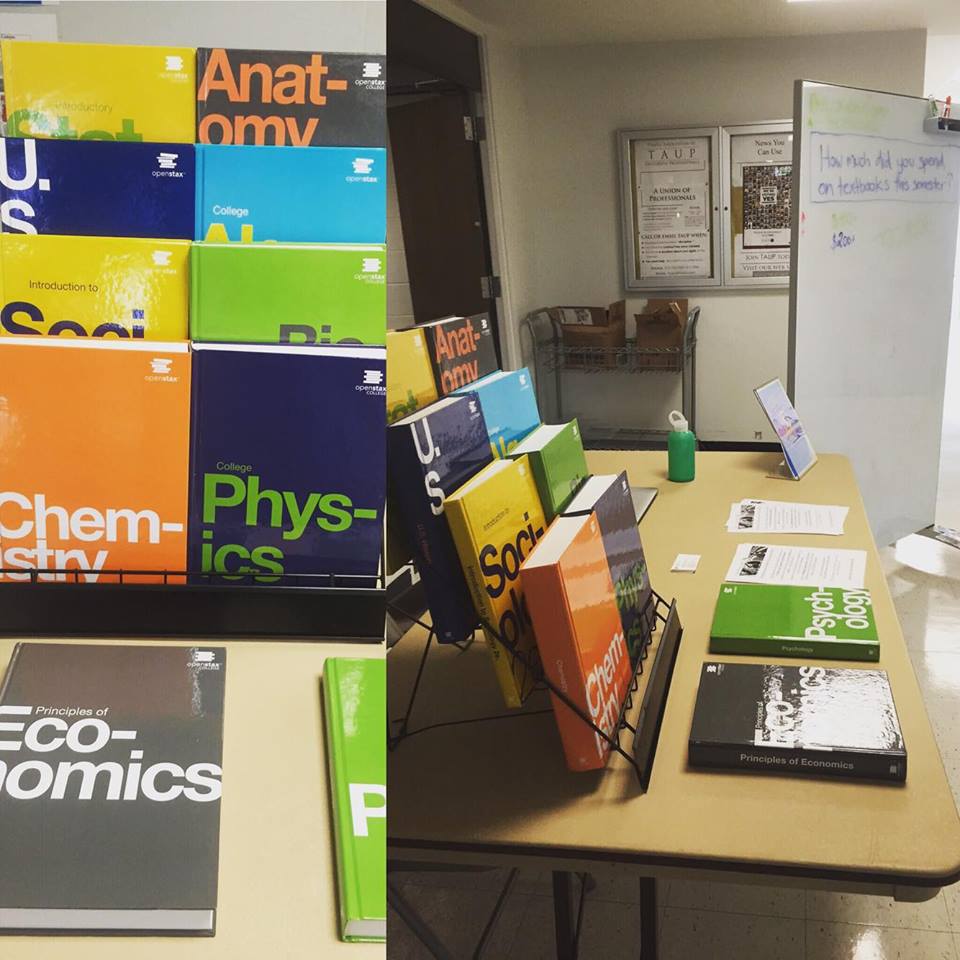The Libraries support Open Access publishing in a number of different ways. Recently, we launched a pilot Open Access Publishing Fund, which provides money to help Temple researchers cover the costs associated with publishing in an Open Access journal. We are happy to announce that our first recipients of the fund come from Laura H. Carnell Professor of Physics Xiaoxing Xi’s research group. You can read their article, “MgB2 ultrathin films fabricated by hybrid physical chemical vapor deposition and ion milling,” published in the most recent issue of APL Materials, here.
The paper’s lead author, Narendra Acharya, took the time to tell us a little bit about the group’s work: “Magnesium diboride (MgB2) is a superconducting material that allows electricity to be passed through it without any loss unlike in normal wires we use in households. Due to the unique property of this material, it can be used in various sensitive electronic devices. Our particular goal was to grow and fabricate a very thin MgB2 film. This thin film is then used to make hot electron bolometers and superconducting nanowires. Hot electron bolometers are used in astronomy to detect invisible radiation called THz frequency (this frequency is similar to a radio signal but more difficult to detect) coming out of our galaxy or interstellar bodies. By detecting these THz frequencies scientists can get information about any elements or molecules such as oxygen, carbon dioxide, or water present in any planets or solar system in our galaxy or beyond. If present, these elements may signify the possibility of life. Since THz frequency is emitted by many materials, these devices can also be used to detect various materials in a security check system. Similarly, superconducting nanowires can be used to speed up satellite communication. In our paper we present the growth and preparation of ultrathin MgB2 film for use in such devices. At Caltech’s Jet Propulsion Laboratory, scientists have already demonstrated an improved performance of these devices by using our films.”
The authors told us that they wanted to submit their work to APL Materials because it is a highly regarded new journal in the field. In addition, they liked the idea of making their research freely available to people across the globe, especially because MgB2 ultrathin films have many potential uses.
Congratulations to all the authors on this innovative research! Be sure to check back with our blog in the future to learn about other recipients of the fund.


